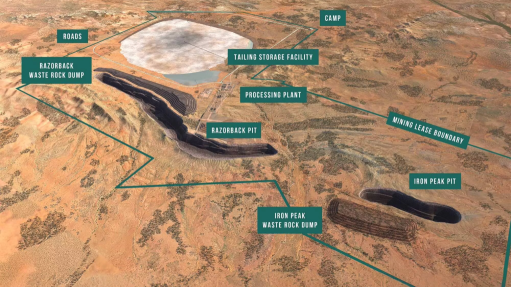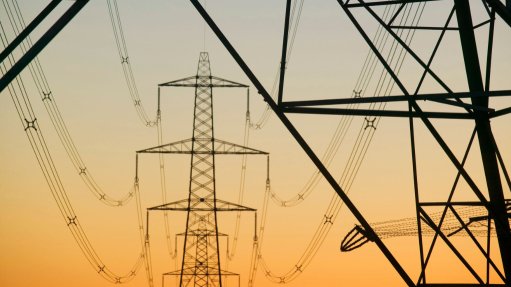Professor shines a sobering light on stakeholders’ expectations of the Budget
Amid multiple stakeholders have stated their wishes for what needs to be addressed and accounted for in the National Budget, come February 22, Stellenbosch Business School economist Professor André Roux says that, even with the best will in the world, it is impossible for government to deliver this wish list in its entirety.
For one, the level at which government can spend is severely constrained by a slimly expanding tax base, on the back of what had been a constrained economic environment in recent years.
Some of the “wish list” items have included the corporate sector and investor community hoping for a significant trimming of the budget deficit, privatisation of dysfunctional State-owned enterprises and an easing in the corporate tax burden, while smaller enterprises hope for tax breaks, a relaxation of labour legislation and a reduction in red tape.
Middle-income households are holding out for lower personal income tax rates, a credible plan against corruption and, along likely many others, the end of loadshedding.
Roux says the commodity price boom and relative buoyancy of some economic activity provided higher-than-expected tax revenue for government last year, with no such windfalls having occurred this year.
He adds that government spending will also, to a large extent, be bound by a significant allocation of resources to Eskom, both in the form of additional financing of the State-owned power utility’s deficits and allocations for diesel acquisitions.
Moreover, the arrangements with regard to duration, magnitude and who qualifies as beneficiaries of social security grants will undoubtedly be announced. For the time being, it seems unlikely that this area of spending, which already accounts for 17% of total government spending, will decline.
Roux also does not have high hopes for a significant reduction in the public wage bill, since it creates, politically, a highly inflammable situation in light of 2024 being an election year.
Meanwhile, he notes that government’s high level of indebtedness leaves it with even less wiggle room in terms of expenditure. Sovereign debt has consistently risen at a faster rate than gross domestic product (GDP), with the ratio of public debt to GDP having reached a critical level of about 75%.
It also does not help that the debt incurred is not making any meaningful contribution to the future production capacity of the economy. In short, he explains, as a result of excessive non-growth-creating borrowing in the past, government is simply not in a position to embark on the expected policy approach to counteract recessionary conditions, such as a programme of fiscal expansion.
Even in the longer term, capital expenditure by government, especially on much-needed economic infrastructure, will be crowded out by what had been far less productive current expenditure.
“We should not lose sight that the Budget speech is, in essence, a three-year review of projected government expenditure and revenue. As such, its primary purpose is not to serve as a blueprint for sustained economic recovery and transformation. By spelling out the intended allocation of the revenue to various government programmes, the Budget speech provides an indication of government’s priority preferences and objectives,” Roux states.
He emphasises that the Budget, even at the best of times, cannot be all things to all people. In times of severe external constraints and self-imposed internal structural imbalances, the limitations are even more stark.
Roux believes the gulf between various stakeholders’ hopes, expectations and the ultimate reality will likely be greater than ever before.
Nonetheless, Roux concludes, South Africans hope to see, at the very least, a plausible and workable plan of action to minimise the debilitating impact of daily power cuts.
Article Enquiry
Email Article
Save Article
Feedback
To advertise email advertising@creamermedia.co.za or click here
Announcements
What's On
Subscribe to improve your user experience...
Option 1 (equivalent of R125 a month):
Receive a weekly copy of Creamer Media's Engineering News & Mining Weekly magazine
(print copy for those in South Africa and e-magazine for those outside of South Africa)
Receive daily email newsletters
Access to full search results
Access archive of magazine back copies
Access to Projects in Progress
Access to ONE Research Report of your choice in PDF format
Option 2 (equivalent of R375 a month):
All benefits from Option 1
PLUS
Access to Creamer Media's Research Channel Africa for ALL Research Reports, in PDF format, on various industrial and mining sectors
including Electricity; Water; Energy Transition; Hydrogen; Roads, Rail and Ports; Coal; Gold; Platinum; Battery Metals; etc.
Already a subscriber?
Forgotten your password?
Receive weekly copy of Creamer Media's Engineering News & Mining Weekly magazine (print copy for those in South Africa and e-magazine for those outside of South Africa)
➕
Recieve daily email newsletters
➕
Access to full search results
➕
Access archive of magazine back copies
➕
Access to Projects in Progress
➕
Access to ONE Research Report of your choice in PDF format
RESEARCH CHANNEL AFRICA
R4500 (equivalent of R375 a month)
SUBSCRIBEAll benefits from Option 1
➕
Access to Creamer Media's Research Channel Africa for ALL Research Reports on various industrial and mining sectors, in PDF format, including on:
Electricity
➕
Water
➕
Energy Transition
➕
Hydrogen
➕
Roads, Rail and Ports
➕
Coal
➕
Gold
➕
Platinum
➕
Battery Metals
➕
etc.
Receive all benefits from Option 1 or Option 2 delivered to numerous people at your company
➕
Multiple User names and Passwords for simultaneous log-ins
➕
Intranet integration access to all in your organisation




















